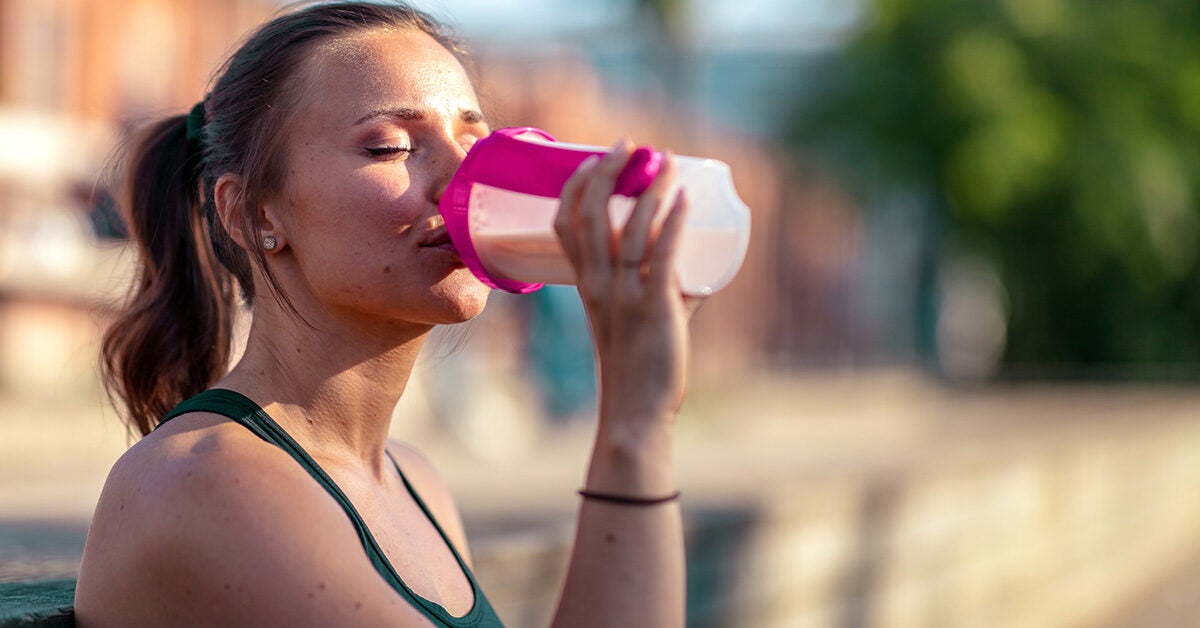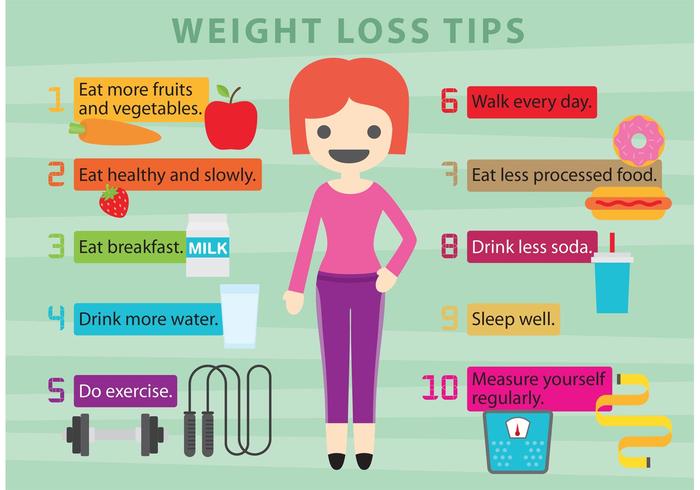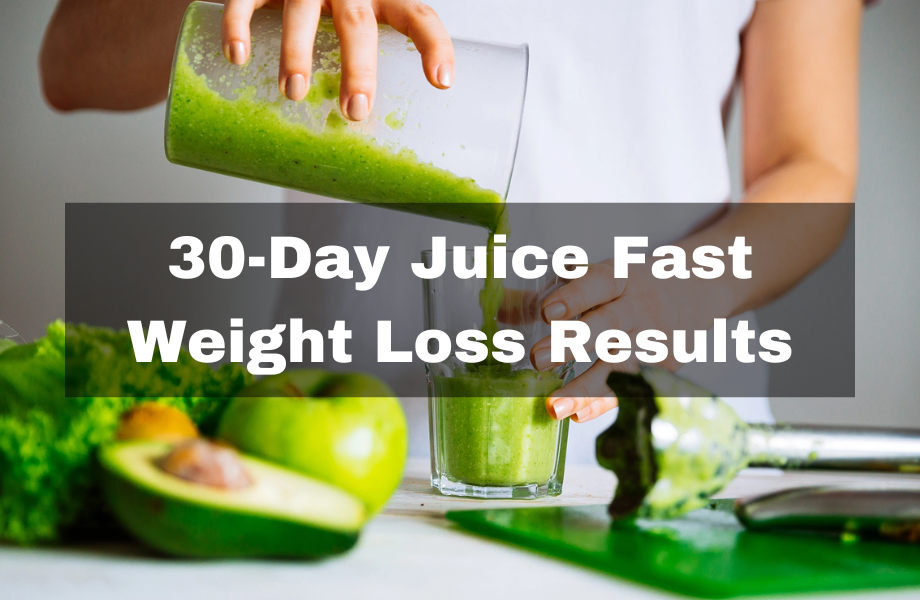One of the most popular diets of the past couple of years is the 30-day juice fast. Many people claim that they have lost incredible amounts of weight on their juice cleanse. Others claim that diets based on vegetable juices are potentially dangerous and will not lead to long-term weight reduction.
So, what is the truth about a 30-day juice fast?
In this article, we investigate the weight loss results you can expect from a 30-day juice fast and examine how safe and effective this form of a fad diet is.
30-Day Juice Diet 101

A 30-day juice diet simply involves consuming nothing but vegetable and fruit juices made from raw food for a period of 30 days. Juicing has become extremely popular, with many celebrities and social media influencers touting its weight loss and health-promoting benefits.
The 30-day juice diet is a pretty extreme form of juicing, extending the juice-only period to a full month. Most people start out with sweet-tasting juices, such as carrots and berry juice on days 1-7. Then, as the days, progress, leafy vegetable juices are added to the mix.
You can find plenty of juice diet menus online that give you the specific ingredients for each day’s drinks. The general recommendation is to consume six glasses of juice per day, which usually means that you’re having another drink every 2-3 hours as part of your daily routine.
You can also drink as much herbal tea and water as you wish on this diet.
Juice Diet Benefits

There are many claimed benefits of doing a juice fast. The main one is rapid weight loss. There are plenty of websites dedicated to showcasing the weight loss results of following a juicing diet, with people claiming to have lost as much as 20 pounds in a month.
Here are some other benefits that are said to result from a juice diet:
- Detoxification
- Gut repair
- Energy boost
- Immune system boost
- Body cleanse
Does Research Support the Juice Diet?
While there is much research to support the health benefits of consuming fruits and vegetables, the evidence behind exclusively taking in these foods is less clear.
When you only eat fruits and vegetables, you are cutting out other nutrients that your body needs. The process of juicing also removes most of the fiber from fruits and vegetables. while advocates of the diet state that this is actually a good thing, the research does not support this view.
Fiber is essential to healthy digestion, promotes proper elimination, and helps with weight loss. A number of studies show that including fibrous foods in your diet will help to remove toxins and bile buildup from the body that will help you lose weight. Soluble fiber can also take up room in the stomach, making you feel fuller. This helps to control the appetite and avoid meal snacking.
Real fruits and vegetables contain antioxidants that may be lost when these foods are juiced. So, getting your fruits and veggies in juice form is not the same as eating them whole; there is some loss of nutrient value. [1]
Is the 30-Day Juice Diet Healthy?

The juice diet has attracted quite a bit of controversy, with many people claiming that it leads to nutritional deficiencies that are harmful to the body. The whole concept of detoxing through fasting does not actually hold weight. Your body is designed to naturally detox; it does not need a ‘boost’ from you by eating only fruits and vegetables.
A big problem when you only consume fresh juice is that won’t be getting enough protein in your diet. Protein forms the construction material of every part of you. When you don’t get enough of it, you are prone to loss of muscle, organs, and bone tissue.
Protein also fills you up more than carbohydrates and fats. So, adding it to your diet will help you to control your appetite and reduce hunger pangs. [3]
When you consume green juice, you are eliminating the fiber from the whole food form of the fruit or vegetable. Cutting out fiber is a bad idea. As well as helping to improve digestion, fiber will also improve bowel motions and control blood glucose levels. [3]
Another problem with juicing is that you may be getting too much sugar. That is because fruits can be very high in a form of sugar called fructose. This may lead to weight gain.
Weight Loss Results

Let’s now take a look at some of the positive experiences that have been reported on the 30-day green juice diet. After checking out about a dozen blogs and websites from people who have followed the diet and turned their kitchen counter into a juice bar, the average weight loss appears to be about 17 pounds after 30 days.
That’s a weekly weight loss of just over four pounds.
While a weekly four-pound weight loss may sound impressive, that’s not the whole story. More important than the total amount of weight loss is the type of weight that has been shed.
When I analyzed the before and after photos of people who had been on the diet, I noticed that, while there was some fat loss, it was also apparent that they had all lost some muscle tissue. Because muscle is a lot denser than fat, a person could lose a little bit of muscle and show a large drop on the scale.
Muscle, however, is something that you should never want to lose.
Weight Loss Tips

In order to lose weight safely, you should not cut any of the macronutrients from your diet. So, you should be eating more protein than you can get on the green juice diet.
You also need more fiber than the 30-day juice-to-cleanse diet provides. As a result, we recommend a diet that is focused more on healthy foods, including whole food forms of fruits and vegetables. Here are our top five weight loss tips:
- Eat 5-6 six smaller meals per day, spaced 2-3 hours apart.
- Eat a fist-sized serving of lean protein at every meal.
- Reduce your daily caloric intake by 250-500 calories below your maintenance level.
- Do 20-30 minutes of high-intensity interval training to burn calories 4-5 times per week.
- Drink at least 2 liters of water per day.
Frequently Asked Questions
Is the 30-day juice diet safe?
No, we do not believe the 30-day juice diet is safe. That is because it does not supply the body with a sufficient amount of protein to maintain body tissue. Neither does it provide the fiber that is necessary for digestive health, improved bowel health, and blood sugar regulation.
The high amount of sugar in juice can also spike insulin levels and be detrimental to dental health.
What is the best type of juice on the juice cleanse diet?
There is no one type of juice that is better than the others. We suggest that you include all juices, including apple juice, citrus juices, grapefruit juice, and kale juice. pear juice, raw juice
Are liquid diets good for weight loss?
No, liquid diets are generally not a good idea for weight loss. The human body is designed to consume solid foods. The combination of nutrients in whole foods does not work as effectively in the body when separated as they are on juice diet plans.
Summary
The 30-day juice diet is a popular fad diet that is popular on social media. This has led to millions of people taking on a multi-day juice challenge. While it may help you lose some fast weight, a large amount of that weight loss is likely to be muscle tissue and other compounds the body cannot afford to lose. Juice diet plans are also too low in proteins and fiber to be healthy.
Instead of following a 30 or even a 7-day juice diet plan, we recommend eating a healthy whole-food diet that reduces your calories by 250-500 and is accompanied by calorie-burning exercise.
References
- Henning SM, Yang J, Shao P, Lee RP, Huang J, Ly A, Hsu M, Lu QY, Thames G, Heber D, Li Z. Health benefit of vegetable/fruit juice-based diet: Role of microbiome. Sci Rep. 2017 May 19;7(1):2167. doi: 10.1038/s41598-017-02200-6. PMID: 28526852; PMCID: PMC5438379.
- Wu G. Dietary protein intake and human health. Food Funct. 2016 Mar;7(3):1251-65. doi: 10.1039/c5fo01530h. PMID: 26797090.
- Anderson JW, Baird P, Davis RH Jr, Ferreri S, Knudtson M, Koraym A, Waters V, Williams CL. Health benefits of dietary fiber. Nutr Rev. 2009 Apr;67(4):188-205. doi: 10.1111/j.1753-4887.2009.00189.x. PMID: 19335713.







